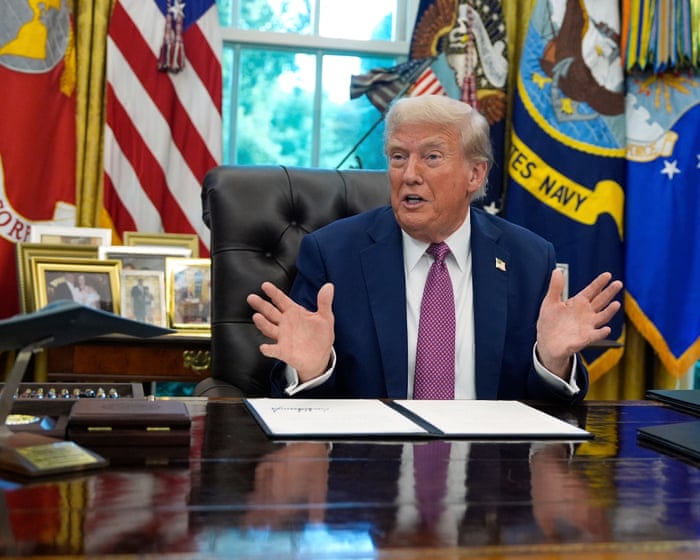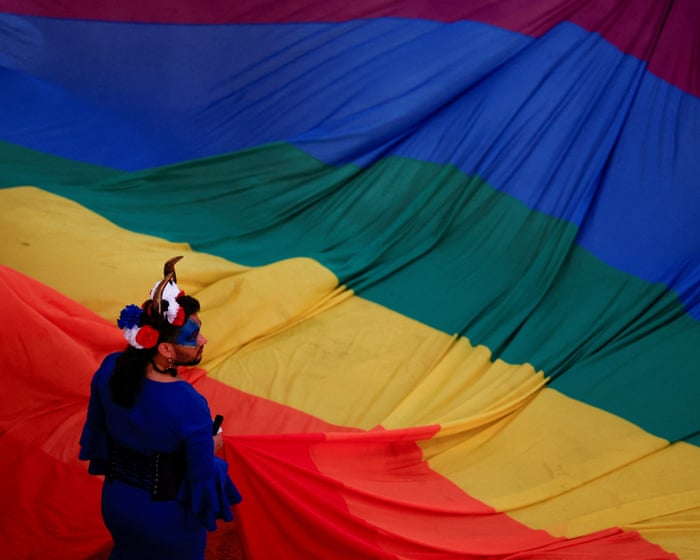When the dust settles after Sunday’s highly anticipated US Open men’s final, the United States Tennis Association will release its annual victory press statement. It will celebrate another record-breaking tournament: over a million attendees, unprecedented social media engagement, double-digit growth in food and beverage sales, and hundreds of celebrities filling luxury suites from Rolex to Ralph Lauren. It will proudly highlight efforts to grow the sport, promote diversity, and turn Flushing Meadows into a pop-culture hub.
But despite all the achievements the USTA is ready to applaud, this year’s tournament will be remembered for a different kind of first: the regrettable decision by the governing body to ask broadcasters not to show any dissent directed at Donald Trump. In making this preemptive concession, the USTA has made an unforced error that can’t be taken back—sacrificing authenticity and credibility to protect a politician, any politician, regardless of party or affiliation, from public disapproval.
According to internal emails obtained by outlets including PA and Bounces, the USTA told its television partners to “refrain from showcasing any disruptions or reactions” when Trump appears on screen during Sunday’s final. A separate note reminded staff that he would be seated in Rolex’s suite as a guest. The USTA spokesperson’s 11-word statement to the Guardian on Saturday night—“We regularly ask our broadcasters to refrain from showcasing off-court disruptions”—is so weak it nearly collapses under its own hypocrisy. (Rolex did not respond to a request for comment.)
This is the same tournament that happily broadcast a climate protester gluing himself to a seat for nearly an hour during Coco Gauff’s semi-final two years ago, along with countless other fan disturbances. The same event that shrugs off the drunken antics behind its “US Bro-pen” reputation. The Open practically invented televised distractions—chaos is part of its brand. For the USTA to draw the line at showing boos for a sitting president isn’t “policy consistency”; it’s surrender.
And to what end? Out of fear that Trump—once a regular at the US Open but loudly booed on his last visit in 2015, just months after announcing his first presidential campaign—might again be seen as unpopular on a global stage? Or that a chorus of jeers could overshadow the match itself? That fear misunderstands both sport and democracy.
Crowd dissent on broadcasts isn’t a breakdown of civic order—it’s an expression of it. Former UK Home Secretary Theresa May was booed at the 2012 London Paralympics. French President Emmanuel Macron was whistled at during the 2023 Rugby World Cup opening ceremony. In the US, NFL Commissioner Roger Goodell is practically guaranteed a round of boos at public appearances, which is mild compared to the hostility NHL Commissioner Gary Bettman receives from fans. Both Trump and his predecessor, Joe Biden, have faced hostile receptions at sporting events. Somehow, the UK, France, and the US survived these moments just fine.
That the USTA believes Trump must be shielded from reality suggests something more troubling. It brings to mind regimes where a leader’s image must be protected from public ridicule. It shows how much Trump’s first term—and his pressure on cultural institutions—still influences behavior. During his first presidency, he was widely criticized by athletes and sports organizations. Now, as noted before this year’s Super Bowl, he is increasingly accommodated or met with silence.
The US Open is supposed to be New York’s tournament—bold, democratic, rowdy, and unfiltered.Getty Images
The U.S. Open is meant to embody New York’s spirit—bold, democratic, loud, unfiltered, and vibrantly multicultural. The crowd is as much a part of the event as the players on the court. By sanitizing fan reactions, the USTA isn’t just protecting Donald Trump; it’s stripping the tournament of its unique character, authenticity, and integrity.
This is especially ironic because the Open has long been a leader in progress. It was the first Grand Slam to award equal prize money to men and women, well before other sports followed suit. For decades, it has supported and celebrated LGBTQ+ athletes—from Billie Jean King and Martina Navratilova in the 1970s, to Renée Richards, one of the first transgender athletes in professional tennis, to today’s Open Pride nights. This year’s theme, “75 years of breaking barriers,” honors Althea Gibson, who in 1950 became the first Black player to compete in the tournament’s predecessor, the U.S. Nationals, paving the way for generations to come. Her legacy is woven throughout the grounds, from banners and installations by Melissa Koby—the first Black artist to design the Open’s theme art—to constant reminders of the sport’s commitment to inclusion.
From a MAGA perspective, the Open probably looks like the “Woke Super Bowl”: Billie Jean King’s name on the stadium gates, Althea Gibson’s silhouette above Ashe Stadium, the Williams sisters celebrated as legends, rainbow-themed Pride nights, and an organization that champions diversity at every turn. Honestly, that may be part of why Trump is attending—a strategic move to turn a tennis match into another stage for political grievance. Being booed by thousands of fans sipping $23 vodka-lemonades might even play well with his base, especially in a city he has called a “corrupt, disgusting hellhole.”
Fans will still be fans. If they want to boo, they’ll boo. But millions watching at home may never hear it, thanks to a governing body acting more like a nervous campaign stage manager than a guardian of the sport. For tennis, which prides itself on honesty and clarity—the ball is either in or out—this is a shameful retreat.
Frequently Asked Questions
Of course Here is a list of FAQs about the USTAs decision regarding political dissent at the US Open framed in a natural tone
General Beginner Questions
Q What exactly did the USTA do
A The USTA created and enforced a policy that silenced or restricted players fans and attendees from expressing political dissent specifically against thenPresident Trump during the US Open tournament
Q Why is this considered silencing dissent
A Its considered silencing because the policy specifically targeted and prevented people from expressing critical political opinions Dissent means disagreement with those in power and this policy aimed to stop that
Q What does unAmerican mean in this context
A It refers to the idea that the freedom of speech and the right to protest are fundamental American values protected by the First Amendment Silencing political criticism is seen as opposing these core principles
Intermediate Advanced Questions
Q Why is this decision called hypocritical
A Critics call it hypocritical because the USTA and other sports organizations often promote and support social justice initiatives when they align with popular opinion but appeared to suppress speech that criticized a specific powerful political figure
Q In what way was it cowardly
A Its viewed as cowardly because the decision seemed to be motivated by a fear of political backlash or financial repercussions from the Trump administration or its supporters rather than a principled stand for free expression
Q Didnt the USTA just have a no politics policy Isnt that fair
A While many venues have general conduct policies critics argue this was not applied neutrally The enforcement seemed targeted making it less of a blanket no politics rule and more of a no antiTrump politics rule which is a key distinction
Q Whats the difference between this and a private companys right to set rules
A The USTA is a private entity and has the legal right to set rules for its event The criticism isnt primarily about legality but about morality and consistency People are arguing that while legal the decision was ethically wrong and contradicted the organizations other stated values
Q Can you give a specific example of what was silenced
A Reports indicated that security personnel asked attendees to remove antiTrump tshirts



